
G’day and welcome to Partakers Christian Podcasts! Join us for uplifting Bible teaching, inspiring readings, heartfelt worship, powerful prayers, and fascinating church history. Whether you’re new to faith or growing deeper in your journey, we’re here to encourage and equip you. 🎧 Tune in, interact, and be inspired—wherever you are in the world.
Episodes
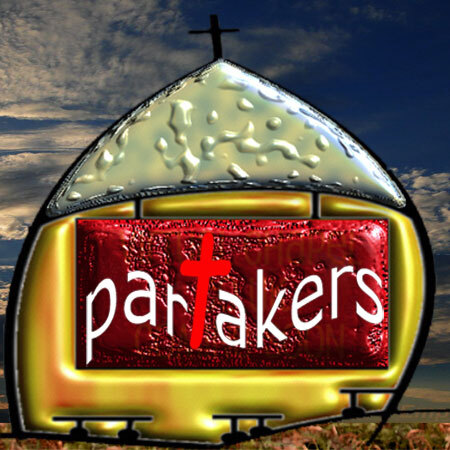
Monday Oct 29, 2012
Think Spot
Monday Oct 29, 2012
Monday Oct 29, 2012
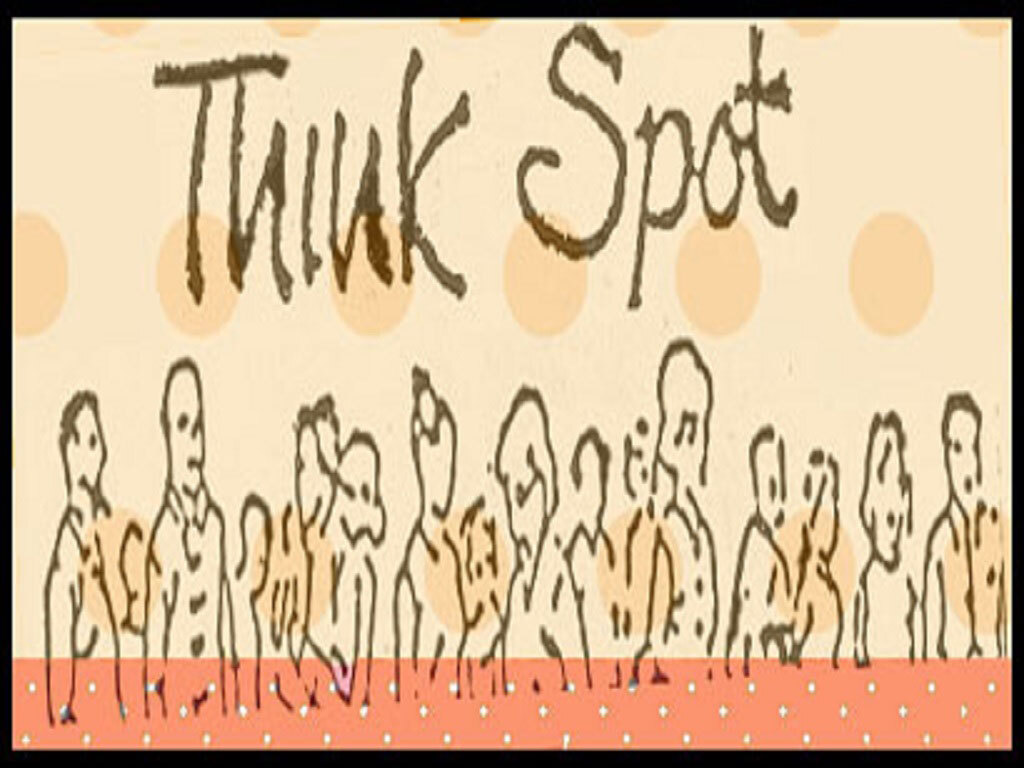
Think Spot 29th October 2012
“From the time the traffic lights took to change, God changed me forever”
As I entered the room at the invitation of a young couple eager to share their new faith with their close friends I was confident through God this would be a night to remember. I had that wonderful assurance that He was going to move in saving power that night as I explained the commandments one by one. Very quickly she made up her mind to repent and asked me how she could become a Christian. I spoke of the cross and its significance. How Jesus had kept the commandments and how he could remove our breaking of the law having suffered our consequences and forgiving us in the process. Also I explained about Him giving to us His robe of righteousness to wear as a gift when we stand before His Father. She knelt in submission and deep repentance and through faith received the joy of the Lord into her life. I looked towards her husband and he looked at me and said “That's not for me.” Strange as it may seem I knew this would happen so I said quietly to him. “I know you are not ready for this yet but it will happen soon.” I think to myself that maybe when he approaches any traffic lights now that are red if his mind does not go back to that eventful day when God spoke and he responded, “Now is the day of salvation if any man hear his voice and respond he will be saved” (2 Corinthians 6:2) Remember today is the day of salvation another day may not come like this one. Pharaoh, hardening his heart, thought he could keep putting the day off and kept changing his mind. Eventually the day came when he presumptuously thought he would come off best yet again but instead God hardened his heart and his opportunity was gone forever. When God sent the mighty wind to drive back the waters of the red sea to allow Israel to cross safely onto safe land he pursued as ever thinking “I am in charge here”. What happened? God caused the winds to change direction and as far as puny man was concerned “One puff was enough” and Pharaoh was finished forever. Joys Prayer You are the Almighty God who cannot be contained in anything or in any given place for You are far above all and have all power, all knowledge, you see everything and everybody. You truly are an awesome God, yet you think about us. You created us for your glory and although we have all strayed from your chosen pathway for us. Help us to recognise the moment when you are confronting us and drawing us by your love to respond and to see clearly the relationship you desire for us to have with yourself. That we are incomplete and unfulfilled apart from You. To say “NO LONGER” to the sin that draws us away from you such as the pride and stubbornness of Pharaoh. You have said “Humble yourself and in due season you will be exalted” May it be so for your name sake… AmenRight Mouse click to save this as an audio mp3 file
Click on the appropriate link to subscribe to this website
iTunes



Thursday Oct 25, 2012
Glimpses 55
Thursday Oct 25, 2012
Thursday Oct 25, 2012
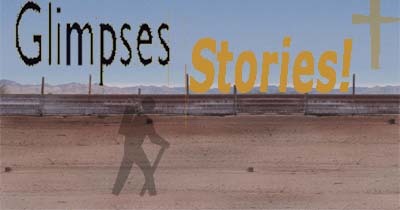
Glimpses 55 -
Life from the Faroe Islands
This is the story of Life, from the Faroe Islands sharing about her encounter with Jesus, how he saved her physically and spiritually and what she wants to do with the rest of her life after graduating from University - fighting injustice.
Right mouse click here to download as a MP4 audio file
Click on the appropriate link to subscribe to this website
Subscribe via iTunes

Monday Oct 22, 2012
Think Spot
Monday Oct 22, 2012
Monday Oct 22, 2012

Think Spot 22nd October 2012
Immediate Action required
David's words in Psalms 51 & 32( verse 4 especially) very clearly reveals to us the state or condition of his sinful heart as he goes into graphic details regarding his extreme pain and suffering he went through following his adultery with Bathsheba and making her pregnant. In addition, his evil plan to get Uriah her husband to come home on leave and arrange for him to spend time with his wife to make it appear he had made his own wife pregnant. (2 Samuel 11) When he couldn’t get Uriah to lie with his wife he then added to his wickedness devising a plan whereby Uriah would be placed in the hottest place in the next battle so he could easily be shot at and killed by Israel's enemies. Then he would have it said Uriah was the father of the child to be born to Bathsheba his wife. That was David's plan but he had reckoned without God. One year later God sent Nathan the prophet to convict him of his grievous sin with Bathsheba as well as against her husband Uriah. Nathan told David “God's eyes have seen your wickedness in murdering Uriah one of your soldiers making an evil plan to have him placed in the firing line of the enemy with the objective of him dying and then stealing Bathsheba to be your own wife and making her pregnant. You have forgotten God's omniscience in all you have said and done.” You and your family will suffer over this but you will be forgiven “ Nathan the prophet had come to David and David's sin's were laid out before him and he becomes convicted over his sin and is prepared to repent after a year of agony being under conviction. The psalms are graphic and explain the pain and suffering his soul goes through until he admitted his crimes before God and repentance takes place. The details in Psalm 32 and psalm 51 of David crying out to God and seeking forgiveness are frighteningly real and graphic and deserved hell. However he was promised forgiveness but there would be sad consequences which follow such sins. He had suffered for 365 days and nights of being bereft of Gods blessed presence , unable to sleep, but did not seek forgiveness at any stage during that year. Instead he suffered a grieving and angry God as he said “I felt His heavy hand upon me............day and night I was wasting away until I confessed my sins and you forgave me and the joy of your salvation was restored to me!” No doubt some nerves and remembrances in your own life have been touched of things we all have done and deeply regret and maybe also there have been consequences we have had to face up to. However we acknowledge it was our own fault and we cannot blame God. Others may have been involved with the error of our ways but it is so important for you to come clean and not try to hide your sins as David had attempted to do for such a long period. If you have been hiding sin remember the eyes of God are everywhere and He sees all. You cannot hide anything from God as Adam and Eve attempted to do . Loose words spoken are careless and can cause so much harm even before any wrong action takes place. Guard your mouth, your eyes, your ears and your feet from going where you should not tread. The same question may be applied to you today as Adam and Eve had to face. God after their disobedience. The Lord called to Adam “Where are you ?” Not, where are you hiding but Where are you spiritually with me? Why have you departed from our close fellowship we enjoyed when I came down and met with you each evening? “ Repentance is neither optional or easy but an essential action we must take. We live perilously until we do. The best and only way to a restored relationship is heart repentance with God. Immediate action must be taken! You will like David suffer indescribably soul discomfort if you continue in your sin until you turn back to God. Remember, God's pressure on you is in love He wants you restored. He is only a prayer away but it must be real, genuine and from the heart and mind repentance with a view to stay away from that temptation once and for all. . You cannot fool God and I can assure you that you will not sense that rest in God until you do it honestly. I speak with others from sad experience but I can tell you the relief that comes to you and the joy in restored service to God is far beyond describing. Oh what a wonderful understanding God we worship and adore, praise His wonderful name and the joy in knowing Him. Remember Immediate action must be taken!!Joys Prayer.
Gracious God and loving heavenly Father, we all have sinned and come far far short of the glory of God but we are aware that sin separates us from the love of God and the beautiful fellowship we can enjoy with you when we walk in obedience to your will for our day to day lives. Wr pray for all who are walking in darkness and havn't seen the light of God in the face of Jesus Christ that they may see and believe. Also we pray for backsliding believers that they will see the foolishness in recognising your heavy hand upon them and not relenting. Lord break them down and bring them to that place of humility and repentance that they may enjoy one more that sweet communion with you Lord. In Jesus name, AmenRight Mouse click to save this as an audio mp3 file
Click on the appropriate link to subscribe to this website
iTunes



Friday Oct 19, 2012
Friday Prayers
Friday Oct 19, 2012
Friday Oct 19, 2012

Partakers Friday Prayers!
19th October 2012
We pray together and when Christians pray together, from different nations, different churches and different denominations - that reveals Church unity! Come! Let us pray together!
A prayer of Aethelwold of Winchester (908-984AD)
May God the Father bless us!
May Christ take care of us;
May the Holy Ghost enlighten us all the days of our life!
The Lord be our defender and keeper of body and soul,
both now and for ever, to the ages of ages.
Amen
Right mouse click to save this Podcast in MP4.
 If you find these resources helpful to you, please do prayerfully consider making a donation. Thank you
If you find these resources helpful to you, please do prayerfully consider making a donation. Thank you
Click on the appropriate link to subscribe to this website
Subscribe via iTunes

Monday Oct 15, 2012
Think Spot
Monday Oct 15, 2012
Monday Oct 15, 2012

Think Spot 15th October 2012
"You will seek Me and find Me when you seek Me with all your heart" Jeremiah 29:13 Recently in our local church we discussed the subject of Commitment. It was interesting to note as people spoke what their idea of commitment was and the various hindrances to such an ideal relationship with God. Even more recently I was listening to a series on the Law of God and its place in our lives. I was pleasantly surprised to hear a seasoned pastor give his thoughts on what the law should mean to the christian today under grace. He said “we should not shrink away from the law saying Its too frightening, too high for me to attain but rather treat it like a friend.. “Really” you may say “I thought I was now under grace and do not have to look at the law anymore to attempt to be saved in the keeping of the law.” True, but wait a minute, “Hasn't it any other usage? Was it only given to shut our mouths from saying I can live perfectly (Romans 3) and keep the law to satisfy God and enter heaven that way” The Bible says “The Law is good” and if its good then we should be trying to live by the law for the glory of God first and foremost, our own spiritual health and the spiritual health of others shouldn’t we? We have received the Holy Spirit to strengthen and encourage us to do so. But to what degree will He help us? What standard do you set yourself each day? Are you really wanting to be fully committed or keep saying to yourself “well we cannot do it so I will just struggle along and keep on saying sorry when I fail trusting the blood of Jesus Christ to cleanse me anew each time.” Today we find, there are countless enticements that pull us away from a fully surrendered life. It is my firm belief, that, second only to salvation, the fully surrendered life is the most important aspect of the Christian life...to truly know God: “You will seek Me and find Me when you seek Me with all your heart” Note the word “all”.(Jeremiah 29:13). Sadly, very few of us ever experience this close relationship with God. This isn’t meant to discourage, but to convict. Conviction is a wonderful gift from God used to turn the heart back to Him. The puritans used the phrase, “The same sun that melts the wax hardens the clay.” In the same way, we can allow the word of God to soften our hearts, or we can resist and become hard as stone. How many can truly say like Jeremiah, “His word is in my heart like a fire, a fire shut up in my bones. I am weary of holding it in; indeed, I cannot” (20:9). How many have truly experienced Jesus’ words in John 7:38, “Whoever believes in Me, as the Scripture has said, ‘Out of his heart will flow rivers of living water’.” How many can truly relate to “times of refreshing” found in Acts 3:19, “Repent and turn to God, so that your sins may be wiped out, that times of refreshing may come from the Lord.” How many really understand what John the Baptist was referring to when he cried, “After me will come One Who is more powerful than I, Whose sandals I am not fit to carry. He will baptize (overwhelm) you with the Holy Spirit and with fire” (Matthew 3:11). Those who hold Christian beliefs often embrace one of two extremes when it comes to the power of the Holy Spirit. I read recently and its quite true “At one extreme are those who embrace pure emotionalism and hysteria—“if it’s odd it’s God” ... all weird behaviour is excused. The other extreme resembles a cemetery. There’s no living, vibrant spiritual life taking place. The church is dead, cold, and lifeless. Talk of the Spirit’s power is either dismissed or ridiculed. Both extremes are wrong and offer a false impression of genuine Christianity.” The writer is absolutely right isn't he? May we be encouraged from Scripture to seek the Lord with all our hearts and ask to be filled to overflowing with the Holy Spirit's “living water” so that we spill over and cannot keep it to ourselves to both proclaim Christ and to live lives which shine for Jesus. Think about it.
Joys Prayer
Gracious God and loving Heavenly Father ,we bow humbly before You The Lord God Almighty thanking you so much for putting up with us when we say 'more of self and less of You' in our lives. May we desire with all our hearts to want to live totally committed lives before You and live consistently to your praise and glory. Help us not to be nervously looking at the Law of God and help us to see it as a friend. If we say we are on the victory side then help us to show to others outside the church as well as new believers that we are truly victorious and that God is powerfully working in our lives. Help others to view us as different in such a way as to see we have a confidence in God and for us Jesus is surely alive! Our prayer is for them to desire to know God too. AmenRight Mouse click to save this as an audio mp3 file
Click on the appropriate link to subscribe to this website
iTunes


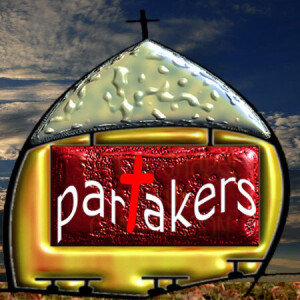
Friday Oct 12, 2012
WOW Paul
Friday Oct 12, 2012
Friday Oct 12, 2012

A 30 second summary of Paul's "poem" about Jesus from Colossians 1:15-20!
The Son is the image of the invisible God, the firstborn over all creation.
For in him all things were created:
things in heaven and on earth, visible and invisible, whether thrones or powers or rulers or authorities;
all things have been created through him and for him.
He is before all things, and in him all things hold together.
And he is the head of the body, the church;
he is the beginning and the firstborn from among the dead, so that in everything he might have the supremacy.
For God was pleased to have all his fullness dwell in him,
and through him to reconcile to himself all things,
whether things on earth or things in heaven,
by making peace through his blood,
shed on the cross.
Right mouse click or tap here to download as a mp4 video file

Thursday Oct 11, 2012
WOW Factor of Jesus
Thursday Oct 11, 2012
Thursday Oct 11, 2012
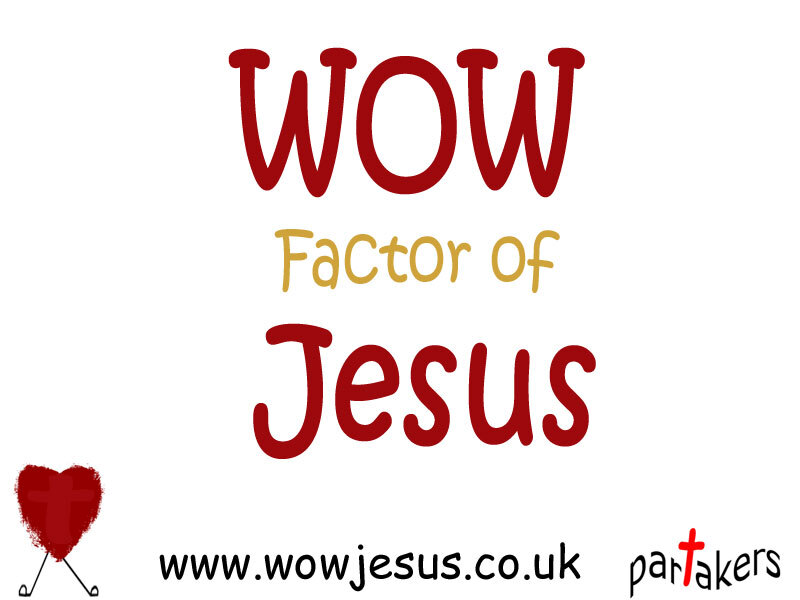
Jesus Christ, the most extraordinary person who ever lived, who never wrote a book but has more books written about him than any other subject! History is split into BC and AD in honor of him! Jesus Christ, the God-man, who gives a WOW factor to anybody who will bow the knee and serve Him.
[youtube=http://www.youtube.com/watch?v=rmmjezAc1qg]
Here in this short video, I introduce my own WOW factor about Jesus. Jesus who promises salvation and how He still challenges and loves people today.
You can download a copy of this video by right mouse clicking here and saving...
I also have a seminar, WOWJesus, which I would also love to bring to your church or group. Contact details are below and at the end of the video. I look forward to hearing from you and how we can work together. Thank you.


Monday Oct 08, 2012
Think Spot
Monday Oct 08, 2012
Monday Oct 08, 2012

Think Spot 8th October 2012
When God shuts the door - what then? The apostle Paul, Silas and Timothy were travelling through Asia on their second missionary journey they tried to go into Bythinia to the North but were hindered by The Holy Spirit, (we are not told how) so they tried to go in another direction but again it was negative but The Holy Spirit was gradually pushing them towards Troas a sea port. Why? Because there they would find a positive response to their daily enquiry, “where next do you want us to serve you Lord?”
Right Mouse click to save this as an audio mp3 file
During the night a vision was given and Paul both saw and heard a person from Macedonia in Greece beckoning them not once but continually saying “Come over into Macedonia and help us” (Acts 16:9: )Doors had closed at first and then opened through a Divine interruption of sleep. And now having been so assured Paul, Silas, Timothy and Luke joining them (16:10) they set a “straight course by ship” (16:11:) (straight suggests the weather conditions were made perfect by the Lord who provided directional winds for their sails) and soon they were on the shore at Neapolis and from there they travelled into Philippi. After several days in Philipp-i where they had time to pray for fresh openings and opportunities they were then led by The Holy Spirit to three people from completely different ethnic backgrounds. One was a Greek, another was an Asian and the third a Roman. They and their households on hearing the gospel repented, believed and trusted in Jesus Christ for salvation. The first church was established in Europe because God had a man who was ready both to be used and guided to where God wanted Paul to serve Him. Now then, each morning Joy and I go into a local heritage centre having prayed for similar opportunities to talk to people about Jesus Christ. We seem almost to be given an adventure a day as we fully trust The Holy Spirit to guide us to whom God wants to address and He gives us words also to speak as each occasion presents itself more often or not unexpectedly. But we are there ready for Him to use us and our different gifts and He doesn’t disappoint us. Maybe God is wanting to do that with you. Are you willing? Are you reading His Word for daily guidance and cleansing? Are you giving Him listening time in order to hear His voice clearly directing you. Look up Proverbs 3:5-6 two of my favourite verses. Memorise them, hide them in your heart and they will then be ready to put into practice and your daily experience and ultimately the results will be for His glory for which we live don’t we?. Bye for now have a day to remember and at the end of it don’t forget to give thanks to God.Joys Prayer
Gracious Loving Heavenly Father, we thank you that You want to have such a close intimate relationship with us. You want to walk and talk with us as we live out each day. We have duties to perform, work and pleasures to enjoy. We can so easily get so wrapped up with our selves that we forget to ask for your will for our lives. We pray “Your will be done” but do we mean it? May we give each day to you recognising your will is always best. In Jesus name, AmenRight Mouse click to save this as an audio mp3 file
Click on the appropriate link to subscribe to this website
iTunes



Saturday Oct 06, 2012
Saturday Special
Saturday Oct 06, 2012
Saturday Oct 06, 2012

Saturday Special
Hi, I'm Jo Royal - I'm an Assistant Pastor in Basingstoke and I love to drink tea, wear Converse and blog! I also love good conversations and often spend a fair amount of time reflecting on the conversations long after they are finished! It is this reflection that led me to the following thoughts that I would like to share with you about Strong Women.
Right mouse click here to save this a mp3 file
Last week, this statement cropped up in three separate conversations regarding different women. Strong women. And each time, I cringed. I used to be a 'strong' woman. I lifted weights at the gym regularly, practiced Judo weekly, and had a pretty good success rate with arm wrestling. There's nothing wrong with being a strong woman. But, this wasn't what they meant, was it? No, the focus of their strength had nothing to do with their muscles, but their character. Character can be understood as 'the stable and distinctive qualities built into an individual's life which determine his or her response regardless of circumstances.' Therefore, a strong character can simply be defined as someone with the ability to respond with strength in all circumstances. To remain constant and strong in a world crazed with uncertainty, inconsistency, and irrationality. A strong character is needed if we are to effectively navigate life's experiences. If this is the understanding of a strong character, then why does the phrase so often get spat out with disdain and caution when specifically referring to women? A strong woman? The term 'strong' when referring to the character of a woman, often carries quite a distinct interpretation.
- Bossy
- Opinionated
- Outspoken
- Stubborn
- But only of a woman.
Very rarely does the phrase get used when describing a man. And if it does, then it is usually referred to as a positive character trait. Is strength in a man a virtue, but strength in a woman a vice? Is it good that a man displays strength, but a woman conceals it? Is this what God ordained? Did he create men to have strong character and women to be weak? Can we read only of strong male characters in the Bible?
What of Ruth? (Click here to see a Partakers study concerning her!) A woman of 'chayil' - (power, strength, resources, effective) What of Deborah? The prophetess and judge who had to know her own (or God's) mind and speak it.
What of Mary? (Click here to see a Partakers study concerning her!) Who chose to go against the cultural norms of the day, and engage in something she (rightly) saw as more important. And what of Jael? (Click here to see a Partakers study concerning her!)
Who took matters into her own hands, confidently driving a tent peg through the head of an enemy. And Biblical women weren't strong? Shouldn't all Christians, whether male or female, aspire to have a strong character? A character that allows them to follow the will of God, speak on his behalf, and love and forgive in a culture that exemplifies the opposite? Shouldn't all Christians, whether male or female, demonstrate strength of character that comes from knowing who we were created to be? Shouldn't all Christians, whether male or female, be encouraged to speak up, and not shut up? Shouldn't all Christians, whether male or female, be encouraged to stand up for what is right Shouldn't a strong character in all Christians be celebrated and not shunned or frowned upon? Yes, even when that strength is embodied in a woman. And if the idea of this makes you feel uncomfortable, perhaps you ought to ask yourself why.

Monday Oct 01, 2012
Think Spot
Monday Oct 01, 2012
Monday Oct 01, 2012

Think Spot 1st October 2012
Where is your faith?? Going down memory lane recently I remembered a man of 24 years of age who attended our mission hall in South East London and for some while did not seem to show particular interest in the preached message until one day he shook me with his amount of faith which on that occasion exceeded my own by far. We always went down to the famous Cutty Sark in Greenwich after the evening service close to the River Thames to hold a short open air service on a stretch of grass nearby.. We had the most improvised equipment imaginable to impart the message and a few gospel songs which were played on a record turntable in what looked to the unknowing onlooker to be an old pram on wheels. It was ancient I can tell you. However ancient I had inherited it and intended to put it to good use. It included a microphone attached which was powerful enough for proclaiming the gospel and all of this equopment run on an old car battery. Yes this was back in approximately 1970 I think. Now to the true story. One particular Sunday night as we began the evening service I could not believe for one moment we would be having the open air service later. It was raining cats and dogs as Britishers would say . It was incessant and looked in for the night. So I put away at the back of my mind any likelihood of us making the journey down to the river front that night. However, Fred had other ideas. As soon as the service finished he came up to me and said “Well are you ready?” Ready for what? ” I enquired. “Down to the Cutty Sark” he replied. “But its pouring with rain and so no one will be out and about and it will be a waste of time to go?” I replied. He came right up close and said with complete confidence “Where is your faith Mr Allis?” I was quite taken back but muttered “Oh come on then lets go” Well the faith was completely with Fred that night and so we went and I expected a completely deserted river front with absolutely no one in sight and I was right. As I commenced the service with a Bev Shea song I looked around and saw a few windows open in high flats at the waters edge but no sign of life. So with ' very little faith' I I began my gospel message aiming it towards the few distant windows high up where I noticed lights on. As I continued in what was probably about a ten minute address proclaiming Jesus Christ to my surprise a small boy came along the water front kicking a football and behind him, I supposed ,was his mother. She sat on the one wet seat about 20 metres away and rested while her boy played. Remember the rain was still pouring down. As I concluded she got up and came deliberately towards me and said “I came out tonight as my boy was getting so fidgety at home and was pleading to come out so I agreed unwillingly. I am so pleased I did ,now, because God spoke to me as you spoke and I want to return to Him. I have been backsliding for a long while but your message from God made the difference.” Thank you for making the effort on a night like this. Fred was listening quietly near by and as she and her son went on their way he said with a smile on his face “Told you so !, aren’t you glad you came? I certainly was! Joys Prayer Gracious loving Lord, how wonderful are the surprises you give us and they can make us feel so unworthy as we see even our little faith go down to zero when we look at the circumstances and take out eyes off You.. When David went against Goliath he was thought mad to do so by King Saul. However with confidence that His God was much, much bigger than Goliath he even ran towards Goliath and we know that` you Lord won a great victory through your servant David. He fully trusted you to give him victory. He knew it before the stone left the sling. Help us Lord like David not to be overcome with doubt and fear as we see the difficult circumstances. Help us to keep our eyes on You Lord. 'Faith doesn’t look at circumstances but straight at God.' Thank you Lord for your promised faithfulness each day and night. In Jesus Name, Amen Joys Prayer
